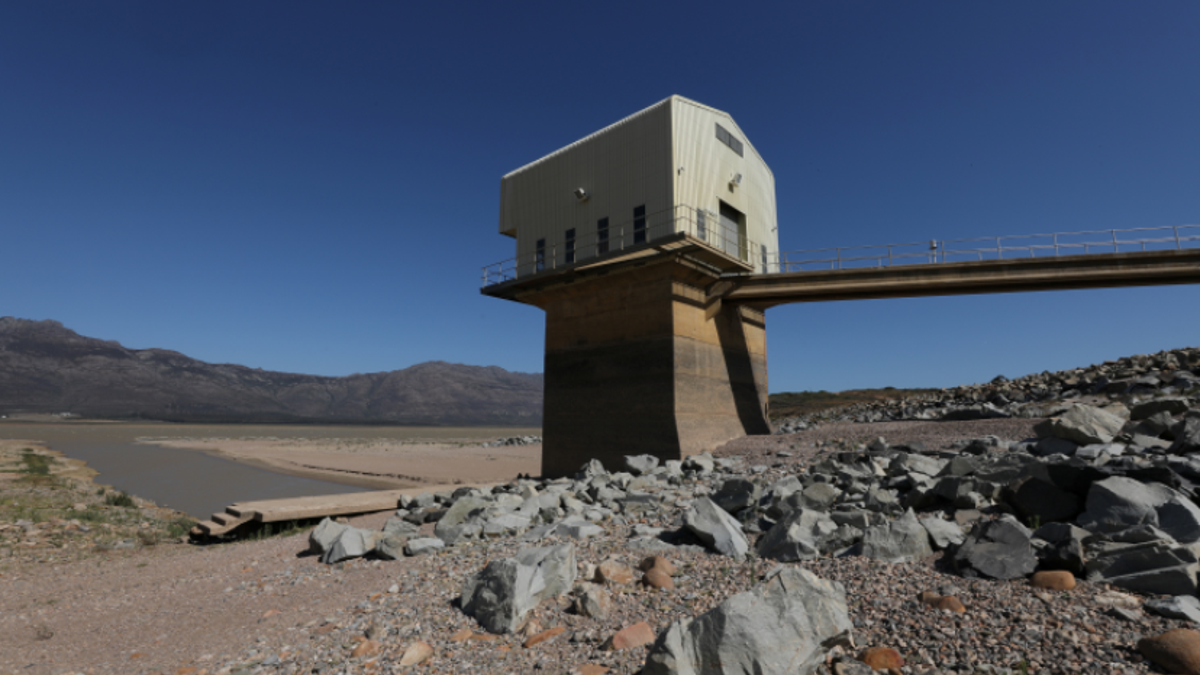
Drought conditions are seen in Cape Town, South Africa. (Reuters)
Scientists believe we could soon cross a climate threshold leading to extreme heat and catastrophic, rising seas in the decades and centuries to come.
A study from a team of international climate researches concludes that the planet may be headed toward “Hothouse Earth” conditions— with global temperatures four or five degrees higher than pre-industrial levels and sea levels 30 to 190 feet higher.
Although these conditions sound extreme or something out of a science-fiction movie, the researchers write that once temperature increases hit a certain tipping point (in this case, a global rise of 2 degrees Celsius), a destructive “feedback” would be created, thus driving temps up even more.
EARTH'S SOIL IS HYPERVENTILATING DUE TO CLIMATE CHANGE
Each year, the Earth’s forests, oceans and land soak up about 4.5 billion tons of carbon that would otherwise end up in the atmosphere adding to temperature increases.
However, as the Earth gets warmer these so-called carbon sinks could themselves end up spewing more carbon into the atmosphere.

The parched land of Death Valley, California is seen above. (AP)
“These tipping elements can potentially act like a row of dominoes. Once one is pushed over, it pushes Earth towards another. It may be very difficult or impossible to stop the whole row of dominoes from tumbling over. Places on Earth will become uninhabitable if 'Hothouse Earth' becomes the reality,” co-author Johan Rockström, former executive director of the Stockholm Resilience Centre, said in a statement.
The potential feedbacks include permafrost thaw, a loss of methane hydrates from the ocean’s floor, dieback of the Amazon rainforest and a loss of Arctic summer sea ice.
“We are the ones in control right now, but once we go past 2 degrees, we see that the Earth system tips over from being a friend to a foe. We totally hand over our fate to an Earth system that starts rolling out of equilibrium,” he added.
CLIMATE CHANGE STRENGTHENS EARTH'S 'HEARTBEAT' - AND THAT'S BAD NEWS
Despite the dire warnings, and not all scientists agree that conditions would get this bad. The study's authors note that a reorientation of human values, behavior and technology toward being stewards of the planet can still preserve a habitable climate for future generations. They maintain that a transition to an emissions-free world must proceed quickly.
“Climate and other global changes show us that we humans are impacting the Earth system at the global level," co-author, Katherine Richardson, of the Center for Macroecology, Evolution and Climate at the University of Copenhagen, said in a statement. "This means that we as a global community can also manage our relationship with the system to influence future planetary conditions. This study identifies some of the levers that can be used to do so.”
